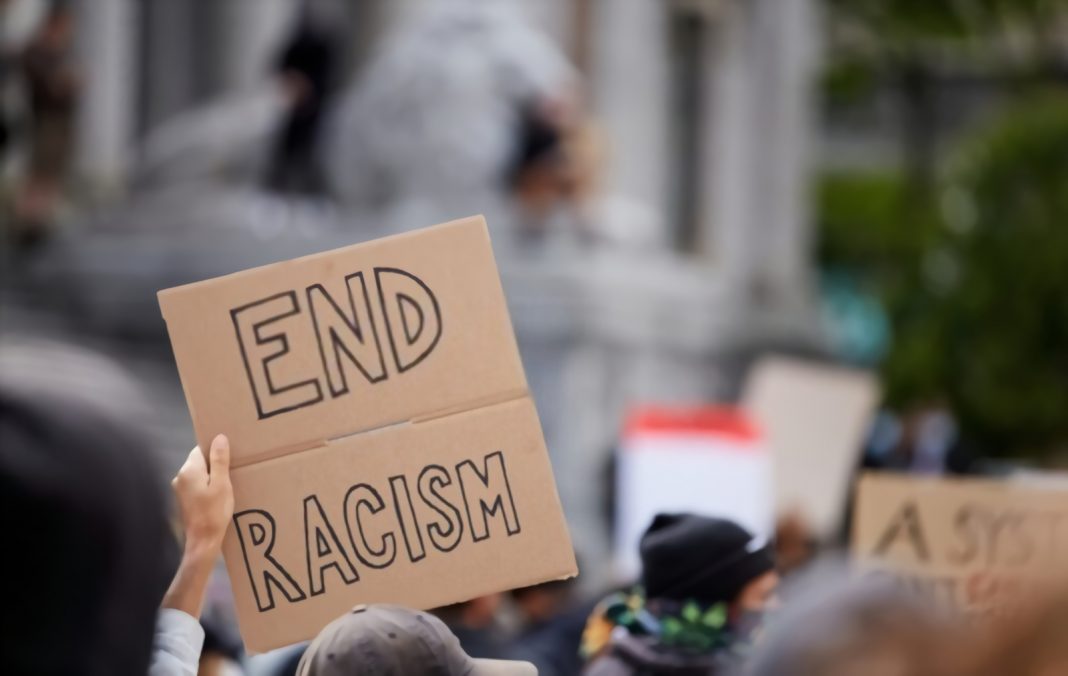given the high level of social prejudice against Islam and Muslims, Islamophobia will remain at the centre of Britain’s extremist policies.
However, in 2020 and reacting to the “the lives of Blacks is important” movement, we have seen more overt racism than Blacks.
We are also witnessing raised slogans against asylum seekers.
We are also witnessing a worrying increase in Anti-semitic conspiracy theories, which some highlight by proposing a conspiracy theory about Covid19 and linking it to the Jews.
INTRODUCE:
In the United Kingdom, Islamophobia is on the rise, but existing anti-racist measures are not equipped to deal with it.
Over the last few years, the United Kingdom has seen Islamophobia rise at a distributing rate. In 2011, Sayeeda Warsi, a former chairman of the conservative party and one of the country’s leading Muslim politicians, raised alarm bells when she claimed that anti-Muslim racism had become so normalized that it had “passed the dinner-table test”.
In 2020, the Muslim Council of Britain sent a dossier of 300 allegations of Islamophobia against Prime Minister Boris Johnson and members of the conservative party to the Equalities and Human rights commission.
The past December, Newsweek reported that the Great British Bake Off’s Ali Imdad was subjected to Islamophobic abuse while taking the bus home. Not only did one of his fellow passengers come to his aid, according to Imdad, but he when tried to speak up to defend himself, the bus driver threatened to throw him off.
Islamophobia does not garner the same recognition as related terms, such as racism, possibly because it has only been recognized in policy discourse in a meaningful way for the last 20 years.
PERCENTAGE OF MUSLIM POPULATION IN BRITAIN:
The United Kingdom has more than 3-4 million Muslim residents, making up almost 5 per cent of its population.
The British Muslim community embodies an enormous diversity of language, culture, and socio-economic status along with a variety of Islamic practices, .but despite having a presence in the country as far back as the 16th century, Muslims are still often treated as “the other”.
HISTORY OF ISLAMOPHOBIA IN ENGLAND:
Islamophobia in the United Kingdom came under the spotlight in the 1970s due to the OPEC oil crisis, which saw the conflation of Arabs and Muslims, both being considered a threat to Britain’s economy and civilization.
The aftermath of the publication of Salman Rushdie’s novel the satanic verses in 1988, which earned him the ire of Muslims worldwide and a religious edict against his life by Iranian leader Ayatollah Khomeini, also trusted Islamophobia into the mainstream.
Even decades later, British anti-racist legislation is inadequate for targeting Muslims by far-right groups using subtler forms of prejudice and discrimination.
For example, prominent columnists at major platforms have written articles calling “Islamophobia a fiction”, arguing that “there isn’t enough Islamophobia within the Tory party”, or asking,” “what will we do about the Muslim problem then?”
RACISM AND ISLAMOPHOBIA IN THE UK TODAY:
It’s starkly evident that significant ethnic and racial inequalities persist in employment, housing, and justice. Black and Muslim minorities have twice the unemployment rate of their white British peers and are twice as likely to live in overcrowded housing.
They are also much more likely to be stopped and searched by the police. We could also add the alarming ethnic differences in death from Covid 19.
The Black live movement (BLM)
In 2013, a movement called the Blacks’ lives movement and the slogan” Black life is meaningful” was launched in the US as a hashtag and under Patrisse Cullors.
In 2020, the BLM foundation spun off its network of chapters as a sister collective called BLM Grassroots to build up its capacity as a philanthropic organization.
REACTION TO THE BLM IN THE UK:
According to a poll, a majority of people believe that Black Lives Matter, the Anti-racism movement that spread across the UK in 2020, has increased racial tension.
Just over half(55%) of UK adults believe that the BLM protests in big cities and the Shetland Islands and the Isle of Weight increased racial tensions, according to a survey of more than 2,000 people pollsters Opium.
Only 17% of the people polled in October disagreed. The polling also showed 44% of ethnic minorities felt BLM increased racial tensions.
OTHER DIMENSIONS OF RACISM IN THE UK:
White racists in the UK also reacted to the migration of asylum seekers through the English Channel. They are opposing the entry of asylum seekers from other races. And they see more slogans against asylum seekers.
We are also witnessing a worrying increase in Anti-semantic conspiracy theories, which some have highlighted by proposing a conspiracy theory about Covid19 and linking it to the Jews.
CONCLUSION:
We can conclude that all these racist incidents and events in England go back many years ago, and racism in this country has become institutionalized and even legal.
Demonstrations and movements in the country show that there is still a long way to dry up the roots of racism in the country.

